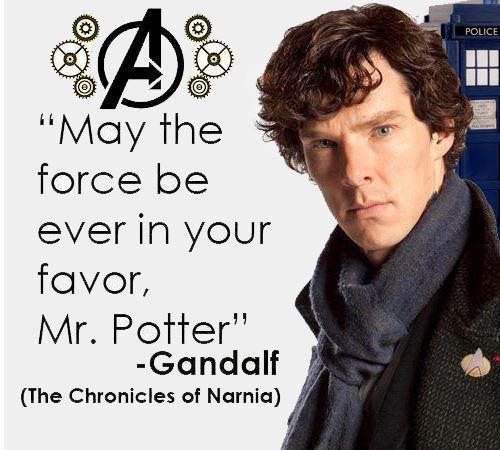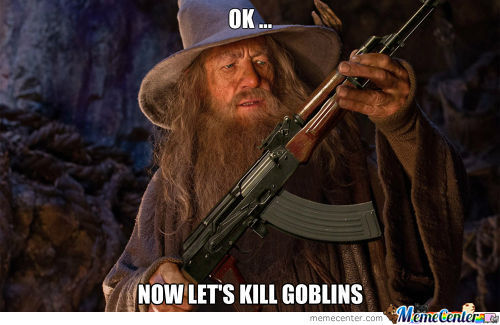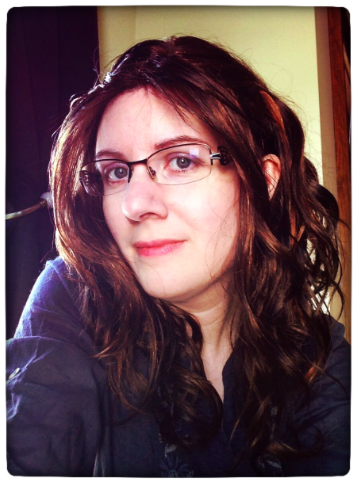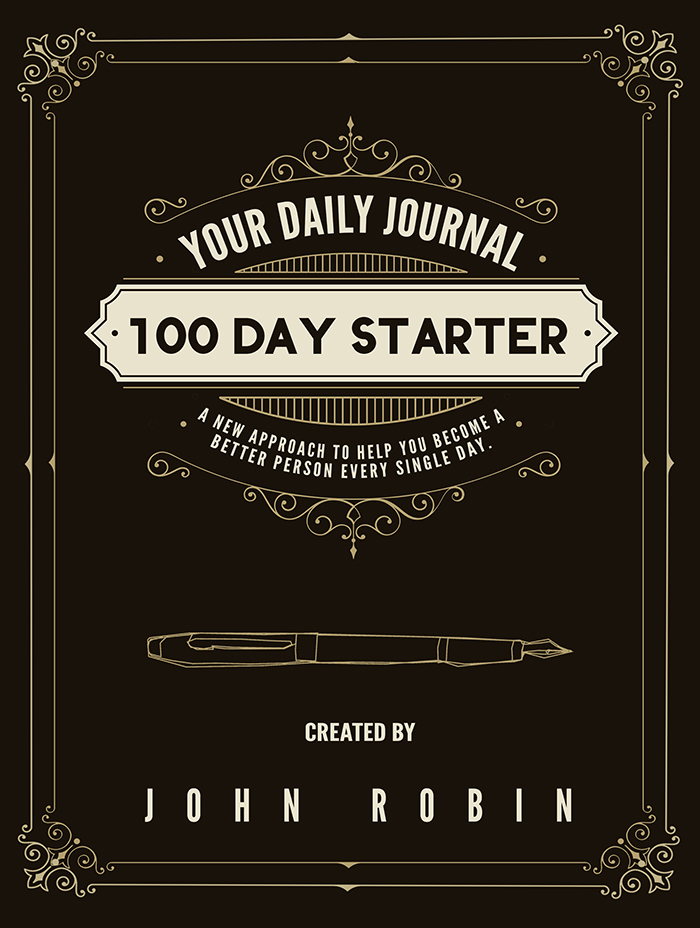(“Because there are some good clichés in this world, Mr. Frodo, and they’re worth fighting for!”)

All right, first I want to say: Your article was great, Yicheng! Good job! Obviously it made me start thinking. Thank you so much for writing it.
Haven’t read it yet? Read it here!
Now, on behalf of all those thinking… “But… but… I like Gandalf… or Obi Wan, or Dumbledore… “ (hmm, I can name a few more I’m sure) I want to stand up for and defend… with my very medievally sword… each of these clichés (note the apostrophe in that word—yes, they exist in reality too.)
- Chosen One/Orphan
Sure, this one has been done over and over, everyone from Harry Potter, to Luke and Ray, to Jesus (yes, he wasn’t an orphan, but he was every bit the chosen one, I’d say). But why? There is a true, deep seated passion that is at the heart of this one. The little guy, the reluctant hero. The tiny or smallish size hobbit-like person that can change the course of not only his or her own destiny, but the fate of all of us. It is proof that heroes should not always be the guy who can throw the most touchdown passes and make all the big money. It could be that shy boy you used to say hi to in the hall before homeroom every day, who goes off to defend his country and saves the lives of his comrades in battle, or invents a new cure for cancer. It is the mom who must fight with everything she has, even if it’s a losing battle, against breast cancer. Stories of the insignificant one, coming from nothing, and finding their courage against all that is dark, and winning the day, that is the epitome of hope to all who read it and feel it. It is that mother’s hope that she can prevail against all odds and get to see her son off on his first day of kindergarten. Or it is her husband’s hope, that after she loses her battle, his and his son’s fight will go on, and her legacy will not be forgotten.
Yeah, this one turned a bit toward the somber, but that is the truth of the symbolic meaning of this cliché, and why, as writers and explorers of human nature, we seek to find our place, and hope that we are not so insignificant as the world would have us feel.
So… how can you reuse and reshape this one? Think of the meaning behind it. Being a chosen one doesn’t always have to be taken so literal. Find a more offhand approach, or if you can’t, use it with caution, and make the motivation a lot more than ‘because the prophecy says so’.
- The Wise Guy
We all need a little guidance in life, but does he have to be old? Does he have to be a guy? Maybe she is a complete jerk, and your hero absolutely hates her, but in the end she learns that everything she’s been preaching is true. Find ways of using the outside source of knowledge and truth in other ways. And, for goodness sakes, don’t make him come in at the last minute to save the day every time your bumbling sidekicks—another cliché that should be used with caution—cause too much trouble and get everyone else caught. (Yes, I’m speaking to the story of The Hobbit here.)
- The Dark Villain
…Actually… I agree with this one, I mean… look at real life evil. Why do they do the things they do? Power, greed, and hate, mixed with a dark need to hurt people. Bad things happen to good people, and someone is often the perpetrator for sick and twisted reasons that we sane people still have trouble understanding… (I grew up a few blocks away from Jeffrey Dahmer back when he was eating brains and listening to the voices). Evil IS real, and sometimes it is much stranger than the fiction we can come up with. We may not always know why a person is evil, but deep down, there is always a reason. Speaking of Dahmer, I later found out that we went to the same places as he did in some cases, grocery stores, etc. Who knows if I ever actually saw him. My friend’s mother did see him, and by looking at him no one would have ever known the evil that lurked there. Which brings up my next point: Bad guys don’t have to look or feel evil, they can look as normal as you or I. It’s what’s inside that makes them so… messed up.
- Strange Spellings to make characters sound exotic.
This one makes sense to me, too. I won’t say much on it, except, use apostrophes sparingly. I will admit, I use them in the ancient language of my fantasy series, but only to insert a break in sound pronunciation. The language is not spoken too often, because I don’t want to frustrate the reader, and I definitely don’t use it in names. When used in character names it trips up the reader, and fights against the flow. Keep it simple. If you want to show a sense of culture from where the character came from, use real life as your guide. Lots of names from Greece have certain sounds that are used often, as do names from Ireland, but they are both very different from each other. We know Bridget is from Ireland and Brutus is from Rome just because of the sound of the words, but they are not hard to say or read.
- Medieval Europe…
Hmm… Renaissance Festivals beware I guess…
I didn’t know people hated Medieval Europe so much at this point. Sure, just like the chosen one/orphan, it’s used a lot, but why? Again, we get into symbolism. Fantasy is about magic, first and foremost. Magic defines the genre, not science. An author can have a kind of science that rules or defines the magic, but the people of their story have to believe that it is magic; a mystical, unexplainable force. Remember how angry we were when Lucas tried to explain away the Force with Midichlorians? Ugh… And Star Wars is considered Science Fiction! Yet it is still the hero’s journey, which defines the fantasy genre and gives it meaning. We need our people to have something to believe in, whether it is part of their religion—and just like in the real world, it most likely is—or just a sense of the life and world they live in. If they have the technology to disprove magic, then we can’t have magic anymore. The Medieval Europe-type world is often used because the land outside is just as dangerous as the evils that lie within. They have to work the land and understand it. They need it to survive, but it can also kill them. If life was easy… like ours is now, they would be less inclined to believe in magic, or even have a need for it. The conflict would be gone, along with a center piece of fantasy. Of course, Star Wars and Harry Potter prove that it doesn’t have to be so, but the reasons behind this choice should be well thought out. Many times, as with Game of Thrones, it is the environment of choice because if you insert guns into the equation, taking a life is too easy. The blade wielder must have training and knowledge, they have to physically fight to win, and they also must see the eyes and will of their opponent. They must make the decision to take a life, and earn it in the end.

One rule to rule them all
In conclusion to both sides of the cliché coin is one main thought or lesson learned: Use the Fantasy tropes and clichés carefully. Use them to honor the great writers and inventors of this genre. Don’t create it just because you thought it was cool. Make it have a purpose, make it different and yours… own it. A story should not be written just because you and your friends thought it was a great summer game of Dungeons and Dragons, because, after all, if your story idea came from that, with only a few character classes and morals to choose from, it will fall flat, from the world building to the characters, and even to their motivations and quests.
Above all, write with purpose and meaning, write what you love, and learn to do it well.
###
 Melissa Berg is the author of the Shifting Balance Series, which has been her passion for the past ten years. She also works as an illustrator and studied art and design at Madison Area Technical College in Madison, Wisconsin. When she isn’t writing or painting or entertaining her son, she is pursuing the art of 3D computer illustration/animation, as a side project and to feed her fascination in the ever-expanding medium used for storytelling. She currently lives in Minnesota with her husband, young son, and a crazy Border Collie.
Melissa Berg is the author of the Shifting Balance Series, which has been her passion for the past ten years. She also works as an illustrator and studied art and design at Madison Area Technical College in Madison, Wisconsin. When she isn’t writing or painting or entertaining her son, she is pursuing the art of 3D computer illustration/animation, as a side project and to feed her fascination in the ever-expanding medium used for storytelling. She currently lives in Minnesota with her husband, young son, and a crazy Border Collie.
Check out my website or join my mailing list for further updates: http://theshiftingbalance.com
‘Like’ my pages on FaceBook: https://www.facebook.com/theshiftingbalance/, https://www.facebook.com/Melissa-Berg-Illustration-334413330053966/
Follow me on Twitter: @WhimzicalMusing


Reblogged this on The blog of the unknown writer and commented:
Ok, that is a pretty amazing rebuttal and I personally think think this is amazing. Even though it’s not written by me, I’m going to reblog this.
Guilty for using Medieval Europe too. Yikes! Perhaps I’ll change the setting to Ancient Asia next time. There will still be evil outside the four walls… there will still be swords.
Or you could pull ideas from several time periods and places. Gives a lot more interest to everything from architecture to weaponry. Perhaps different aspects of their culture developed faster or slower than ours. 😉
A mix and match sounds like a great idea. Now that would be a world everyone can relate to.
Love the article. Sent here from Goodreads by John Robin.
He said I would find this article encouraging, and he’s right.
I think I may have followed this advice already to a large extent.
.
Hey Olli, I’m glad you liked it! I do see a lot of articles that tend to discourage writers, especially those of us who love the genre of fantasy. Sometimes the clichés are part of why we love it. Joseph Campbell writes about a lot of these tropes in his book, The Hero With a Thousand Faces. The heroes journey is important and if done right, full of symbolism that we love to dissect and figure out, which is probably why it has stood the test of time. Keep writing what you love, and by all means, break those rules that others try to impose! 🙂
“…love to dissect and figure out…”
Oh yes. In fact, one of the biggest reasons why I hope (dream?) to ascend to the dizzy heights of a bestseller is not for fame and fortune and glory (although of course, those would be nice) but for the chance to see fans agonise over my choice of names (some are more obvious than others) and them trying to work out routes of journeys (which I researched with the aid of Google Earth!)
Ha ha, nothing like being ambitious eh?
Reblogged this on The Shifting Balance Series.